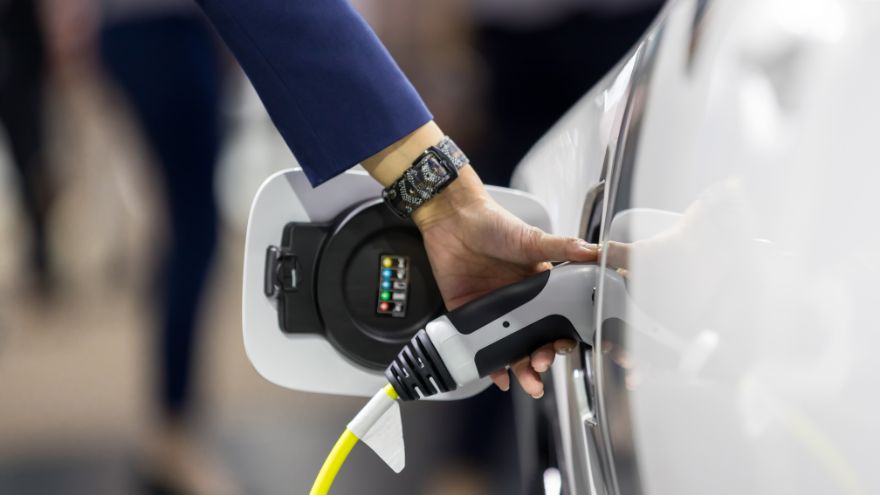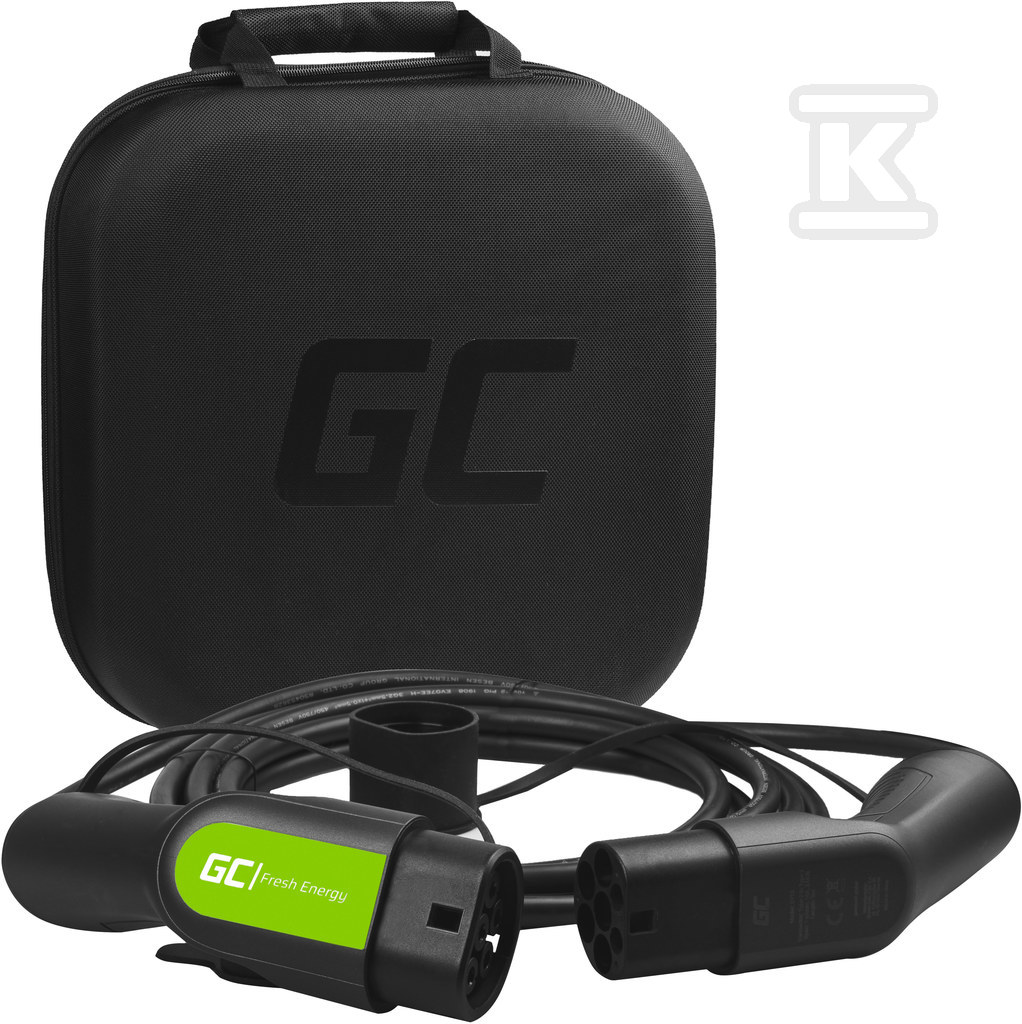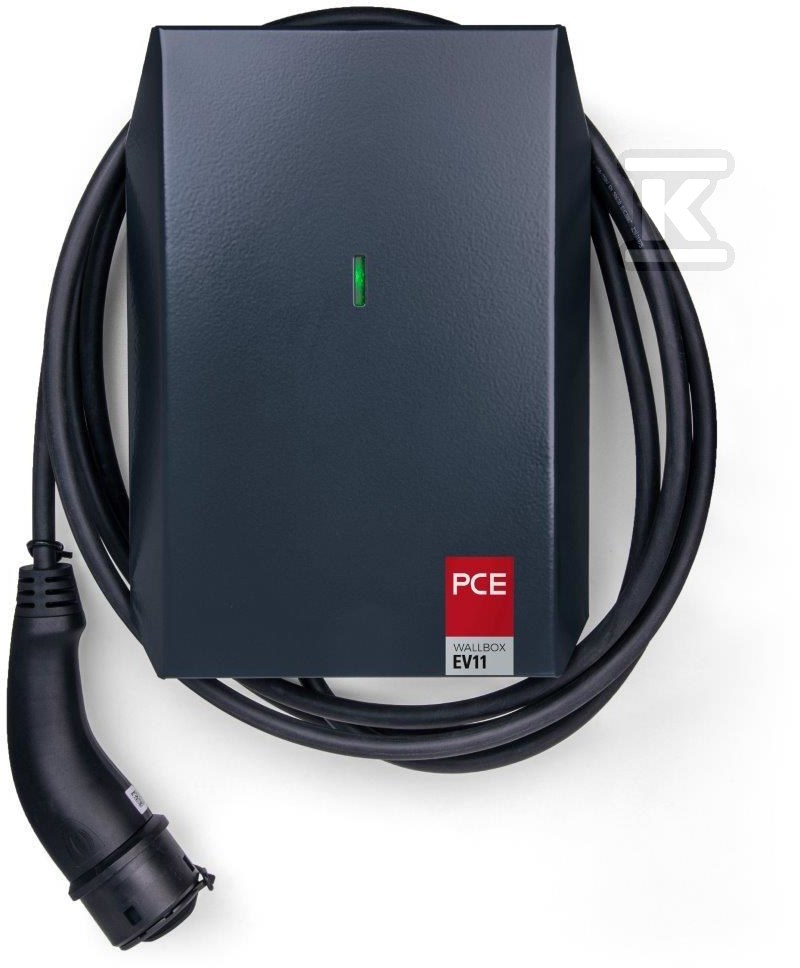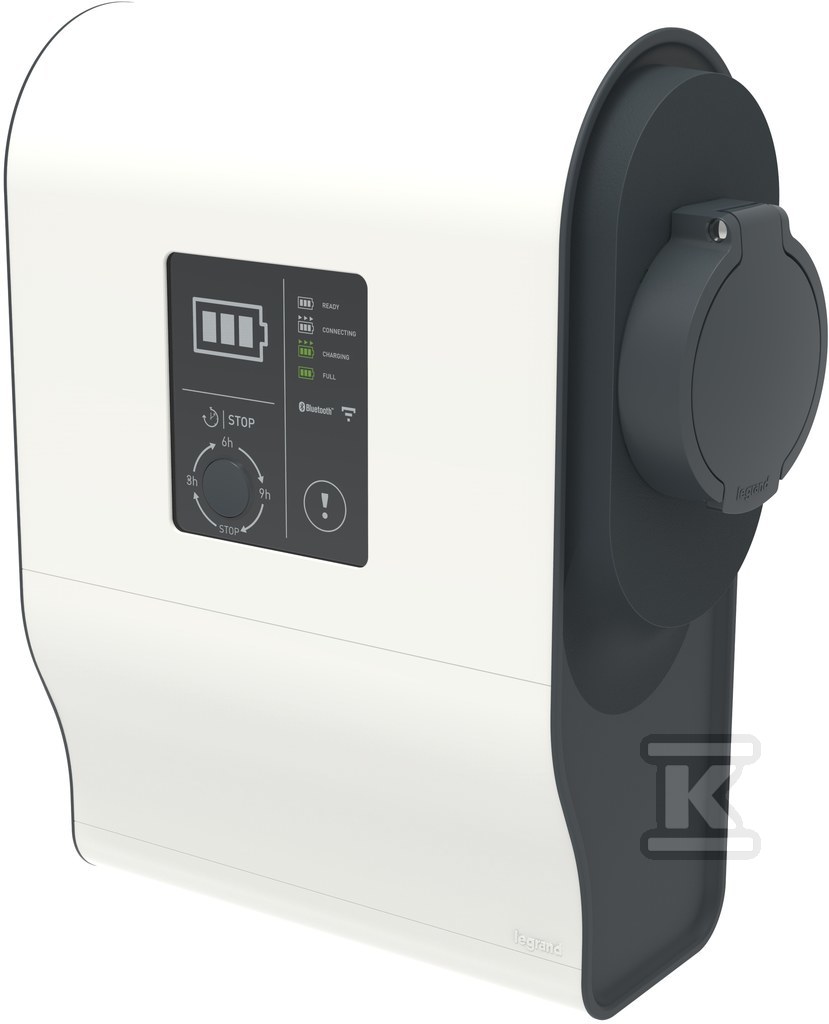Electric vehicles are increasingly appearing on our streets and cities. Despite many initial concerns about reliability, many people decide to buy an “electric car”. How to choose the right charger for your car? What are the types and kinds of connectors for charging electric vehicles?

Check out the electric car charging systems at the Onninen wholesaler
Selecting the charger power for an electric car
Charging electric cars is not a complicated process. However, you need to remember to choose the right charger power. Only then will the vehicle be properly charged and ready to drive. Electric car chargers are available in different versions. One of the factors that distinguish individual models is the power of the charging device.
 It should be emphasized that currently there are two types of chargers available for sale - single-phase and three-phase. The first ones are dedicated to traditional 230 V networks. These chargers come in two versions, with a power of 3.7 kW and 7.4 kW. This is quite a small power, which means that charging the battery in the car could take many hours, depending on the capacity of the battery in the vehicle.
It should be emphasized that currently there are two types of chargers available for sale - single-phase and three-phase. The first ones are dedicated to traditional 230 V networks. These chargers come in two versions, with a power of 3.7 kW and 7.4 kW. This is quite a small power, which means that charging the battery in the car could take many hours, depending on the capacity of the battery in the vehicle.
Three-phase chargers are available in two versions: 11 kW and 22 kW. Higher charging power means that the car battery can be charged much faster. However, this solution has its drawbacks, because unlike classic AC chargers, it requires access to public charging stations.
Electric vehicle charging systems are increasingly available in public spaces, which is a great convenience for vehicle owners. However, it is worth having basic knowledge about the selection of charger power to take advantage of the available facilities.
How do I know if the charger will be compatible with my car?
When choosing a charger for an electric car, you should first pay attention to whether it is compatible with the vehicle. It is best to opt for solutions dedicated by manufacturers. If it is necessary to choose a new charger, you must first decide what type of connector will be needed - AC or DC. Then you need to pay attention to the power of the device, which is expressed in kilowatts. It is necessary to check what maximum charging power the vehicle supports. The power of the charger cannot be greater than the value that the vehicle can accept. There must be compliance between the voltage of the charger and the battery of your vehicle.
When assessing compatibility, you should also pay attention to communication standards, software and updates. Charging will only be effective if the vehicle and charger support the same standards. Additionally, you need to pay attention to the software version, it must be compatible.
Types and types of electric car charging connectors
The topic of charging electric cars requires knowledge of the types of connectors available in vehicles and chargers. The first issue is to determine whether the connector will be charged with alternating current or direct current.
 Car chargers for electric vehicles charged with alternating current are available in two variants. The first is the so-called type 1 connector - SAE J1772. It is much more commonly used in Japan and North America. It is a 5-pin single-phase connector with a maximum charging power that does not exceed 7.4 kW. The second variant is three-phase chargers with a type 2 connector (so-called Mennekes). It is recognized as a European standard. A 7-pin connector that can support both single-phase and three-phase charging. They are characterized by a much higher charging power, even up to 22 kW.
Car chargers for electric vehicles charged with alternating current are available in two variants. The first is the so-called type 1 connector - SAE J1772. It is much more commonly used in Japan and North America. It is a 5-pin single-phase connector with a maximum charging power that does not exceed 7.4 kW. The second variant is three-phase chargers with a type 2 connector (so-called Mennekes). It is recognized as a European standard. A 7-pin connector that can support both single-phase and three-phase charging. They are characterized by a much higher charging power, even up to 22 kW.
Charging with direct current is possible thanks to devices marked as DC. In this variant, three types of connectors are available:
- CCS, i.e. Combined Charging System, used in Europe in the Type 2 version;
- CHAdeMO, a connector specific to Mitsubishi and Nissan, is the standard most commonly used in Japan;
- GB/T, i.e. Chinese standard.
It is important to remember that when choosing the right type of connector, you also need to pay attention to cables for charging electric vehicles . It is best to choose high-quality products, dedicated and compatible with your vehicle model.
Check out the electric car charging systems at the Onninen wholesaler
Charging speed and power and connector type
In the context of electric cars, questions are often raised about the speed of charging the vehicle and how long a journey will the electricity stored in the battery last? The speed of charging the battery depends primarily on whether it will be charged with direct current or alternating current. The type of connector is also of great importance.
When comparing the speed of charging with direct current and alternating current, it should be noted that when using AC type devices (i.e. alternating current), the process is slower. Vehicles are usually charged at home. An alternative is public stations, but with lower power. In the case of type 1 connector, the maximum power of 7.4 kW is used, which gives a charging speed of approx. 40-50 km of range for each hour of charging. In type 2 connectors, where the maximum charger power is up to 22 kW, the time required for maximum charging depends on the type of charger you have. In single-phase models with a power of 7.4 kW, the charging speed is approx. 40-50 km of range for each additional hour of charging. In turn, with 11 kW chargers, the speed increases to approx. 60-80 km for each hour of charging. The highest efficiency is offered by three-phase 22 kW chargers, here each additional hour means a range greater by approx. 120-160 km.
In the case of DC charging, the time required to charge the vehicle battery is much shorter, but it must be remembered that this type of connector allows charging only at specific points. The charging power in the case of the CCS connector is 50 kW (which gives approx. 250-300 km of range for each hour of charging), 150 kW (i.e. 750-900 km/h of charging) or 350 kW (i.e. from 1000 to 1200 km/h of vehicle charging). These parameters are similar in the case of the CHAdeMO connector (250-300 km of range per hour of charging with 50 kW charging devices, 500-600 km for 100 kW power and 1000-1200 km for a charging device power of 400 kW).
It is worth bearing in mind that the time required to charge an electric car battery also depends on additional factors. The size of the battery is of great importance here, because the larger it is, the higher the charging power it can support. Weather conditions, the battery charge level and the software used and available updates are also important.
A convenient solution is the Wallbox wall chargers , which are suitable not only for commercial use, but also for everyday use at home. Cables for charging an electric car must be adapted to the installation, which is the Wallbox.
How to properly protect a car charging station against overvoltage and short circuit?
If you are looking for the right solutions for your electrician, be sure to check out Onninen's offer. A wide range of cables and chargers for electric cars means that everyone will choose cables and solutions adapted to the parameters of their vehicle.
The charging time depends on both the charger itself and the cables. For electric car users, there are Green Cell GC Type 2 3.6kW 5m EV13 cables available with a connection power of 3.6 kW. The 5 m cable allows you to easily connect your vehicle to an electric vehicle charger.
The use of Wallbox solutions, such as the PCE 11kW PCE EV11 Wallbox, is a safe and functional solution that allows for quick charging of the vehicle. The car can be prepared for driving even at home using the device. Owners of electric cars appreciate tailored solutions, and having their own Wallbox means that they do not have to use public charging stations. The demand for modern solutions is growing, along with the growing interest in electric vehicles among consumers.
By using proven and certified solutions, you can be sure that protection against power surges and short circuits will take care of electric cars during charging.
Check out the electric car charging systems at the Onninen wholesaler
